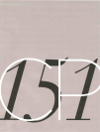Que tem a ver o gênero com o parentesco?
Mots-clés :
Relações de Gênero, Classe Social, Sexualidade, RaçaRésumé
Devemos o conceito de intersectionality (interseccionalidade) a um grupo de feministas e lésbicas afrodescendentes que, no final dos anos 1970, denunciaram a cegueira racial de que padeciam suas companheiras brancas ao ignorarem as discriminações particulares em função de classe social, “raça”, sexo/gênero e sexualidade. No entanto, a atual moda dessas intersecionalidades entre diversas categorias de classificação sociocultural está em relação inversa com a falta de pesquisas empíricas sobre a questão na teoria feminista. Neste artigo, recorro ao meu estudo clássico Racismo y Sexualidad en la Cuba Colonial (1974, 1992) precisamente para documentar tais intersecionalidades dinâmicas nessa sociedade desigual, legitimada por uma doutrina racista e o consequente controle dos corpos sexuados das mulheres das elites, contra o fundo ontológico da dissociação binária moderna entre cultura e natureza.
Téléchargements
Références
ARDENER, Edwin. Belief and the problem of women. In: ARDENER, Shirley (Ed.). Perceiving women. Londres: Malaby, 1975. p. 1-17.
BASTIDE, Roger. Dusky Venus, black Apollo. Race & Class, n. 3, p. 10-18, 1961.
BODELóN, Encarna. Leyes de igualdad en Europa y transformaciones de la ciudadanía. In: HEIM, Daniela; BODELóN, Encarna; BONET ESTEVA, Margarita (Ed.). Derecho, género e igualdad: cambios en las estructuras jurídicas androcéntricas. Barcelona: Institut Català de les Dones, 2010. v. 1, p. 9-26.
BRATCHER GOODWIN, Michele. Baby markets. Money and the new politics of creating families. Cambridge: Cambridge University Press, 2010.
COLLIER, Jane Fishburne; YANAGISAKO, Sylvia Junko. Gender and kinship: essays toward a unified analysis. Stanford, California: Stanford University Press, 1987.
COWARD, Rosalind . Patriarchal precedents. Sexuality and social relations. Londres: Routledge & Kegan Paul, 1983.
GOLDBERG, David Theo. Racist culture. Philosophy and the politics of meaning. Oxford: Blackwell Publishers, 1993.
HOOKS, Bell. Aint’ I a women: black women and feminism. London: Penguin Books, 1981.
MOORE, Henrietta L. Whatever happened to women and men? Gender and other crisis in anthropology. In: MOORE, Henrietta L. Anthropological theory today. Cambridge: Polity, 2000.
NEWTON, Esther. The drag queens: a study in urban anthropology. 1968. Tesis (Doctorado) – Department of Anthropology, University of Chicago, Chicago, 1968.
PARKIN, Robert; STONE, Linda (Ed.). Kinship and family: an anthropological reader. Oxford: Blackwell Publishing. 2004. (Blackwell Anthologies in Social and Cultural Anthropology).
POUILLON, Jean. Appartenance et identité. Le genre humain, n. 2, p. 189-198, 1998.
RUBIN, Gayle. The traffic in women. Notes on the political economy of sex. In: REITER, Rayna R. (Ed.). Toward an anthropology of women. New York; London: Monthly Review, 1975. p. 157-210.
SCHNEIDER, David M. American kinship: a cultural account. Chicago: University of Chicago Press, 1968.
SCHNEIDER, David M. The power of culture: notes on some aspects of gay and lesbian kinship in America today. Cultural Anthropology, v. 12, n. 2, p. 270-274, 1995.
SHAPIRO, Judith. Anthropology and the study of gender. In: LANGLAND, Elizabeth; GOWE, Walter (Ed.). A feminist perspective in the academy. Chicago: Chicago University Press, 1983.
STAUNAES, Dorthe. Where have all the subjects gone? Bringing together the concepts of intersectionality and subjectification. Nora, v. 11, n. 2, p. 101-10, 2003.
STOLCKE, Verena (Martinez Alier). Marriage, class and colour in nineteenth century Cuba. Cambridge: Cambridge University Press, 1974 (Re-editado por Michigan University Press en 1989 y 2003; publicado en castellano bajo el título Sexualidad y Racismo en la Cuba Colonial. Madrid: Alianza Editorial, 1992).
STOLCKE, Verena. Racismo y Sexualidad en la Cuba Colonial. Madrid: Alianza Editorial, 1992 [1974].
STOLCKE, Verena. Is sex to gender as race is to ethnicity? In: DEL VALLE, Teresa (Ed.). Gendered anthropology. Londres, New York: Routledge, 1993.
STOLCKE, Verena. La mujer es puro cuento. La cultura del género. Quaderns del Institut Català d’Antropologia. 2003. p. 69-75. Sèrie monografics: A propósit de cultura, n. 19).
STONE, Linda. The demise and revival of kinship. In: PARKIN, Robert; STONE, Linda (Ed.).
Kinship and family. An anthropological reader. Oxford: Blackwell Publishing, 2004. p. 239-256. Parte II. (Blackwell Anthologies in Social and Cultural Anthropology).
STRATHERN, Marilyn. An awkward relationship: the case of feminism in anthropology. Signs, v. 2, n. 112, 1987.
THE COMBAHEE RIVER COLLECTIVE STATEMENT. 1977. Disponível em: <http://circuitous.org/ scraps/combahee.html>. Acesso em: 10 mar. 2009.
VERLOO, Mieke. Multiple inequalities, Intersectionality and the European Union. European Journal of Women’s Studies, v. 3, n. 13, p. 193-210, 2006.
VILLAVERDE, Cirilo. Cecilia Valdés o la Loma del Ángel. La Habana: Imprenta Literaria, 1839-1881.
YUVAL-DAVIS, Nira. Intersectionality and Feminist Politics. European Journal of Women’s Studies, v. 3, n. 13, p. 193-210, 2006.
Téléchargements
Publié-e
Comment citer
Numéro
Rubrique
Licence

Cette œuvre est sous licence Creative Commons Attribution - Pas d'Utilisation Commerciale 4.0 International.
Autores que publicam nesta revista concordam com os seguintes termos:
a. Autores mantêm os direitos autorais e concedem à revista o direito de primeira publicação, com o trabalho simultaneamente licenciado sob a Licença Creative Commons Attribution que permite o compartilhamento do trabalho com reconhecimento da autoria e publicação inicial nesta revista.
b. Autores têm autorização para assumir contratos adicionais separadamente, para distribuição não-exclusiva da versão do trabalho publicada nesta revista (ex.: publicar em repositório institucional ou como capítulo de livro), com reconhecimento de autoria e publicação inicial nesta revista.
c. Autores têm permissão e são estimulados a publicar e distribuir seu trabalho on-line (ex.: em repositórios institucionais ou na sua página pessoal) a qualquer ponto antes ou durante o processo editorial, já que isso pode gerar alterações produtivas, bem como aumentar o impacto e a citação do trabalho publicado (Veja O Efeito do Acesso Livre).









